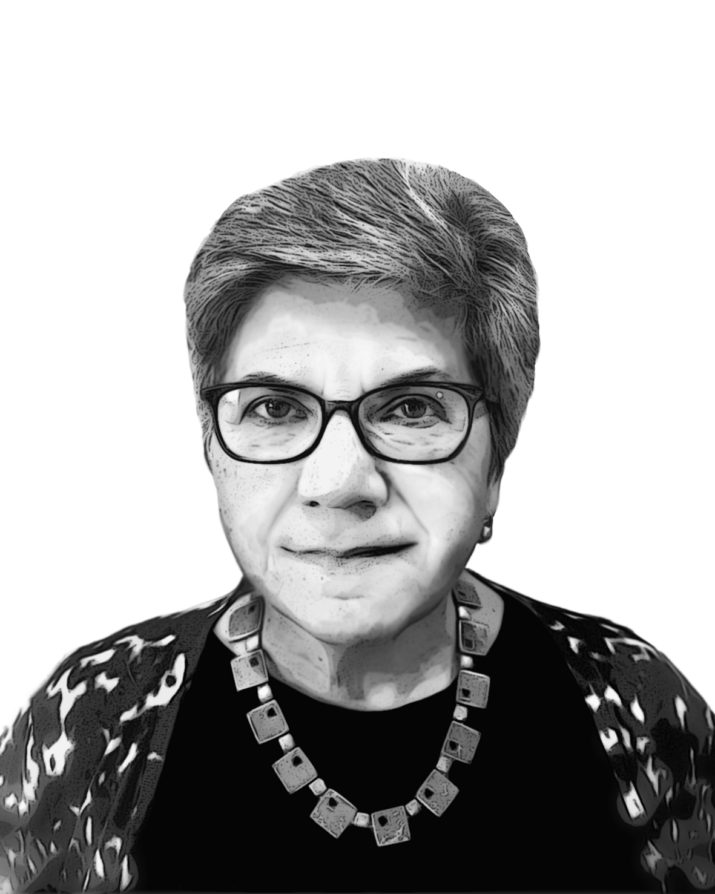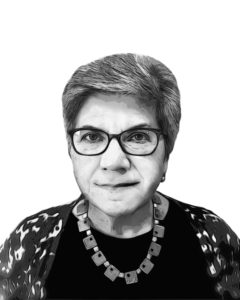

In the current landscape of globalization, populist movements, economic dislocations, and climate change, the challenges of forced migration and displacement are front and center of our political and social tensions. According to the United Nations High Commissioner for Refugees (UNHCR), there are now more than 65 million forcibly displaced persons worldwide, and many of them are “people on the move.” In sheer numbers, this refugee crisis is the largest movement of people since the displacement, deportation, and forced resettlement of millions during and after the Second World War. In its report Global Trends: Forced Displacement in 2015, UNHCR notes that the global count of forcibly displaced people now surpasses the population of the United Kingdom: “[On] average, 24 individuals worldwide were newly displaced every minute during 2015.” Two-thirds of them are women and children.
—Maria Höhn for EuropeNow
This interview below was part of a final assignment for an Interdisciplinary Holocaust class at Mount Saint Mary College, NY, a member of the Refugee Solidarity Alliance, taught by Nicole Shea, PhD. The following Honors Students conducted the interview: Michelle Anne Carnazza, Jessica Lynn Free, Nicole Heather Polgrean and Michelle Wood.
EuropeNow What can the U.S. do in a situation that is, as the majority of citizens feel, outside the scope of daily concern?
Maria Höhn We should move away from thinking that the unfolding global refugee crisis is not a daily concern or that our policies are not implicated in it in any way. As U.S. citizens, there are a number of ways in which we can get involved: get educated, raise awareness, contribute financially and in kind to the UNHCR or other international and local refugee organizations, volunteer with agencies involved with undocumented migrants or resettling refugees, and advocate for refugees at the local, state and federal levels.
EuropeNow What policy changes can be made on a local, and national, scale that could beneficially impact both the United States and those displaced by violence in the Middle East?
Maria Höhn By making our local communities more welcoming to displaced persons in general, we can lay the groundwork for a shift in thinking. We need to remind our fellow citizens as well as our political leaders of our country’s long-standing practice of given shelter, a commitment that emerged in response to the horrific failure to help Jewish refugees in the 1930s and 1940s. Nationally, we need to remind our representatives that refugee resettlement is a moral commitment, which has enjoyed bi-partisan support in the U.S. since WWII. Rather that gutting the refugee program, as the president-elect suggested, we should urge our representatives to maintain the program at current levels, with the ultimate goal of increasing the number. Educating Americans on the extremely thorough security and health checks that refugees undergo, and showing solid grass roots support for the families (without ignoring the needs of our own citizens and forcibly displaced individuals who have fled to the U.S. from South and Central America) will alleviate some concerns and anxiety. Proportional to our population, resources and history the U.S. is not doing nearly as enough.
EuropeNow There is a housing crisis in Poughkeepsie, the community that surrounds Vassar College. Many homes are left dilapidated and abandoned, until they eventually collapse, which poses a very real safety concern for those living in the city. How can homes and restoration projects, such as those being implemented by Habitat for Humanity, be impacted by the refugee crisis? How can selling or renting these homes to refugees help cities revitalize?
Maria Höhn A wonderful example of what others have done is in Utica, NY. In the 1990s, the Utica mayor encouraged refugee resettlement to help rebuild a downtown that had been hit hard by deindustrialization. A once thriving community had a significant population decline, leading to closed storefronts and depilated housing. Twenty years later, Utica is back and Mayor Robert Palmieri credits the resettlement of refugees in the last two decades as being part of that urban revival. Poughkeepsie is facing similar problems today, and one of the things we have been considering is working with the local Habitat for Humanity to do exactly what Utica did, as a long-term project. We need to move with deliberate care though; it really would not be fair to our new neighbors to immediately tie them down with a commitment such as home ownership since we need to allow them a sense of agency of where they want to live. For the long-term, however, I see this as a real viable opportunity. Here again, the partnership between local colleges and local faith-based and civic group makes for a powerful alliance. Many of the students in our alliance already volunteer with Habitat for Humanity and the Rural Migrant Ministry, and are interested in Urban Studies and how to revitalize our cities.
EuropeNow How can we use Hellenistic cultural assimilation to eliminate violence and prejudice against refugees?
Maria Höhn That is a big question, and one I struggle with answering, given the individual and institutional prejudice and violence in our country against so many of our own minority groups. Violence against any group or person can never be “eliminated,” but we can work towards greater understanding and acknowledgement of problems. Given the vast divide (both in the media and the polity) that exists in our country, I think the need for a balanced education and awareness of the difficulties different groups in the country face is apparent and critical. We need to start looking at people as just that—people, instead of defining them by a label, with the acknowledgement that the U.S. needs to be cognizant of its past and make adjustments accordingly. At the same time, there is a tremendous fount of good will in our communities. What has struck me most in our outreach to the local community was how easy it was to get people to sign on. That does not mean of course, that there is no backlash or opposition to our plans to resettle refugees. Not all Americans are on board, and often the ones who are speak not as loudly as those who oppose welcoming refugees to the U.S. I think the key for us, now more so than when we started the initiative, is trying to build new alliances across deeply divided sections of our society. For example, one way to deal with local resentment over arriving refugees is to not forget the families in our own communities who struggle with similar hardship of displacement and lack of resources. There will always be “true” haters; you know the kind of people that make it on the list of the Southern Poverty Center. And they have indeed come to our area to stir up resentment and opposition. There is not much that can be done about individuals like this. However, we can work on easing some of the fear and unease some people might have. Education is key. People need to be assured that arriving families have been thoroughly vetted for health and security. And people need to be reminded also of their own or their families’ stories of refuge and immigration to the U.S.
EuropeNow Since there is already a great deal of mental health stigma associated with traumatic terror and living in a war-torn country, how will Vassar help refugees get treatment for their trauma when they already feel like outsiders? Do you think that the mental stigma in the United States will cause the refugees to refuse treatment in order to better “fit in” with our society?
Maria Höhn While we in the U.S. are much more at ease with seeking help for mental health issues, we have watched over the last decade how the military as an institution, as well as individual service members, have been struggling with acknowledging issues such as depression or PTSD. I think an equally difficult or perhaps bigger challenge we are facing is the cultural resistance to mental health treatment in certain refugee communities because of their own cultural traditions. We might be welcoming families that have experienced war and displacement, but they might not want to take their concerns outside of the tight family circle. Men might fear that admitting mental health problems would undermine their authority in the family and their sense of masculinity. Vassar College will not have to deal with this aspect of refugee resettlement alone. CWS was able to open a refugee resettlement office here in the Mid-Hudson because Dutchess County has a rather well established network of mental health support facilities. Additionally, all of the colleges in the Mid-Hudson Refugee Solidarity Alliance can draw on the support and expertise from well-established programs at each other’s schools. Vassar for example does not have clinical training in our psychology department, but our partner SUNY New Paltz has an excellent Institute for Disaster Mental Health, and their director Amy Nitza is very eager to work with local agencies to support our families. Marist and SUNY as well as Mount Saint Mary College and Dutchess Community College have excellent social work programs, which will provide a rich pool of engaged and smart students to work on the ground with local agencies.
EuropeNow Currently, Vassar is collaborating as the Refugee Solidarity Alliance with surrounding colleges in a collegiate effort and spirit of service. Could this Alliance be seen as transformative for higher education in general by allowing liberal arts colleges to take part in the research questions of the day?
Maria Höhn Our initiative Vassar Refugee Solidarity was founded in October 2015 as a determined statement that undergraduate colleges have a role to play in this unprecedented crisis. We have been impressed with the efforts at European universities and some of our own universities in the U.S. Much of those initiatives however, are based within graduate programs and led by students at the graduate level. Given the scope and likely duration of this crisis, we need to intervene at the undergraduate level already so students can prepare for this kind of engagement. They will need to develop interdisciplinary analysis skill as well as ease with language and cultural studies. Students are eager to get involved, be this in terms of innovating new models of educational solidarity (such as italki) or by being involved on the ground working with refugee populations. The passion for this kind of humanitarian engagement and advocacy work needs to be kindled at the very moment when young Americans contemplate what is meaningful in their lives, and what kind of contribution they want to make as they go forward. Engaging with this crisis presents us a wonderful opportunity to highlight and emphasize the centrality of the humanities in higher education.
EuropeNow We have seen that Germany, for example, has created special programs in its higher education institutions to aid refugees with learning a new culture and language. Do you have plans for programs that implement the talent of refugees? Are refugees given the opportunities to learn our culture and language to better prepare them for their integration into society?
Maria Höhn This crisis will be an enduring one that will challenge our students long after they graduate. Thus, we have to build and institutionalize programs, structures, and support networks that will last beyond the next ten or twenty years. Institutions of higher learning must reach out to their counterparts in the U.S. and Europe, as well as in those countries in Africa, Asia, Central America, and the Middle East that have been faced with the largest number of displaced people. Together we can lay the groundwork for educational solidarity networks that will help refugees start new lives abroad or empower them to return to their old homes so they can help rebuild their countries. Such solidarity networks are also key if we do not want to lose generations of young people to political radicalization.
I have already mentioned our JYA plans to bring our student together with refugee students abroad. And our italki pilot is only the beginning of how we can use the digital humanities to learn together. Vassar students are currently also using skype to tutor English to refugee students abroad who are trying to catch up with years of missed education. Currently, we have established partnerships with Small Projects Istanbul, Refugee Academy, Berlin, and the Ad.Dar Center, Istanbul. We are working on expanding these English language programs so that our advanced language students can teach German or Italian to refugees in those countries. We are also working with the Refugee Academy in Berlin, hoping to develop a pilot for language classes for young mothers, who might not be able to take care of language classes because of child care responsibilities.
EuropeNow How does President Trump’s recent Executive Order on Refugee and Immigration policy affect this project and what are you doing to adapt to these changes?
Maria Höhn Well, we had been anticipating some bad news, but the outright Muslim ban and the 120-day suspension of all refugee resettlement is of course a much more drastic shift than any of us could have imagined. The fact that all refugee resettlement was suspended for one-hundred-twenty days, even for refugees who are not from predominantly Muslim countries was truly shocking. We are hoping that some of the fundamentalist Christian communities that supported the president will assert their voices to speed up his review. Many of those churches, as well as other Christian groups, support the resettlement of refugees from the Democratic Republic of the Congo, for example. Our veterans involved in Vassar Refugee Solidarity were stunned that even the Iraq Special Visa program for Iraqi citizens who had worked with U.S. troops was suspended. They fear the dire and long-lasting consequences of that act. Who will ever trust the U.S. military again and offer their services as translators or drivers?
But even if the voices of reason will prevail in the end, terrible damage has been done. People who had already passed a most rigorous vetting process will have lost their clearances, and have to start the process all over again. One bright light is that our first refugee family from the Congo was allowed to arrive in the U.S., but we mourn the others who had already been cleared and were ready to come within days or weeks: A young woman was to be reunited with her mother after many years apart. A young man was to finally see his brother again after many years of separation. Another family from the Congo was expected to arrive very soon to be welcomed by one of our participating congregations. They all lost permission to travel. For now, we will focus our work on advocacy on behalf of refugees, preparing our student to spend time in Europe and other parts of the world where they can work with displaced populations, and raising money for schools in UNHCR refugee camps. Given the scope and anticipated duration of the crisis we need to be nimble in this new political climate, while also preparing our students and ourselves for the long term.
Read more on our volunteers embracing a Congolese family in the Hudson Valley | The New York Times
Maria Höhn is the Marion Musser Lloyd ’32 Professor of History at Vassar College. Her book GIs and Fräuleins (University of North Carolina Press, 2002) was the first book to address the experiences of African American soldiers in Germany. A Chinese translation of this book is forthcoming in 2017. She co-authored and co-edited Over There: Living with the U.S. Military Empire from World War II to the Present (Duke University Press, 2010). A Korean translation of that book will be out in early 2017. She is also the author of A Breath of Freedom. African American GIs, the Civil Rights Struggle and Germany (Palgrave 2010), which was published in German in 2016. A Smithsonian TV produced documentary, “Breath of Freedom,” based on her research was shown in the US and Germany in 2013. She is the recipient of prestigious grants from the Mellon Foundation, the National Endowment for the Humanities, the German Historical Institute, and the American Philosophical Society. Together with a group of Vassar students, she founded Vassar Refugee Solidarity and the Mid-Hudson Refugee Solidarity Alliance.
Michelle Carnazza is currently a senior at Mount Saint Mary College majoring in Biology and minoring in Chemistry and Psychology. She is a member of the Honors Program, as well as the national honors societies in biology and chemistry.
Heather Polgrean is a graduating senior at Mount Saint Mary College where she is receiving her Bachelors degree in Biology and Mathematics. She is a passionate writer who revels in the opportunity to work outside her specific field of scientific research and build both her knowledge base, and her skill set.
Michelle Wood is an undergraduate student at Mount Saint Mary College. She is a member of the honors program and is pursuing a bachelor’s degree in psychology with a minor in mathematics.
Jessica Free is a junior psychology major at Mount Saint Mary College. She is currently a student leader on campus and aspires to be a counselor one day.
Published on February 1, 2017.




